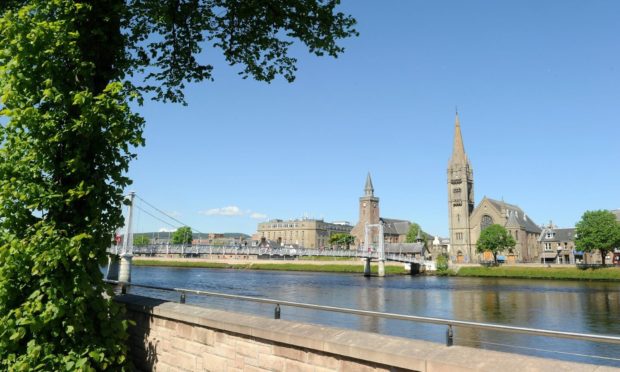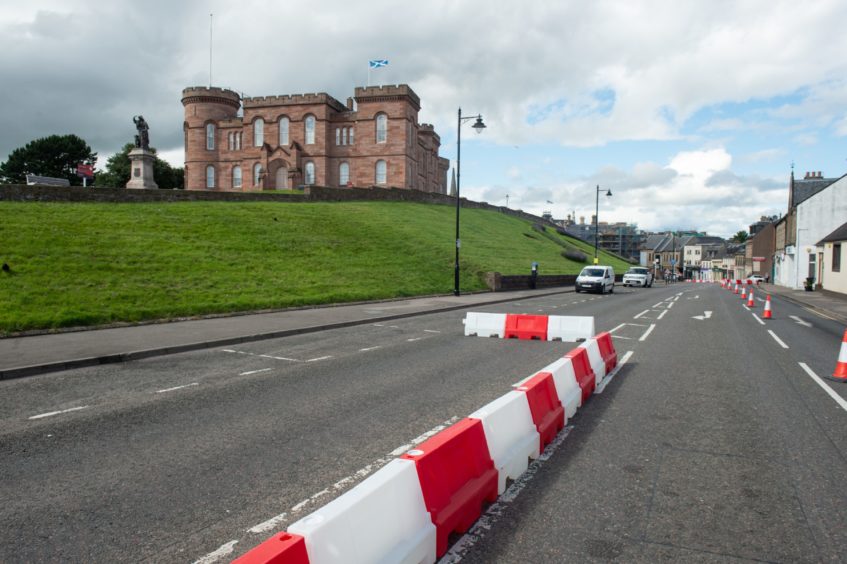Councillors will decide on Thursday whether to make the one-way system at Inverness’s Riverside Way permanent.
Transport planners recommend keeping the one-way system in place, with a contraflow cycle path.
They say the route is part of a long-term vision to make Inverness Scotland’s cycling city.
Without it, the council risks losing a further £1.5 million active travel investment.
Opponents say the scheme has created a “rat run” at the Bught Lane junction and increased speeding.
Consultation woes
The public consultation ran this summer on the website Commonplace. It included a consultation to extend the Traffic Regulation Order, which would keep the one-way system in place.
Separately, the council consulted on a long-term vision for the area. This included a concept design seeking views on six key sections of the road.
Council officers brought the initial findings to November’s meeting of Inverness area committee.
However, the process was thrown into chaos when councillors said there were “serious omissions” in the report.
It transpired that 28 consultation responses were not included. Officers defended the process, saying it was ‘best practice’ to only include responses with validated email addresses.
However, local members said they wanted to see all the responses.
The amended, full report for tomorrow’s Inverness Area Committee meeting includes 14 objections and 18 notes of support.
The majority of responses favour a one-way traffic flow, with contraflow cycle lane. This is the option councillors are asked to approve.
Speeding ‘not a concern’ says council
Ballifeary Community Council sent a lengthy email objecting “in the strongest possible terms”.
Community councillors are concerned that the one-way system has led to increased traffic and speeding.
The council says the changes have led to 340 more vehicles a day travelling westbound on Riverside Way, a peak flow of 141 cars an hour.
The council says that Road Safety GB counts anything under 400 cars an hour as low traffic.
On Ballifeary Road, the council says their latest data shows an average speed of 20.9mph northbound and 21.4mph southbound.
However, no data is available for the past month due to a technical issue with the council’s speed indicator device.
Of the 14 objections, 10 people expressed similar concerns about increased traffic on Ballifeary Road.
Seven people were concerned about road safety, and half wanted the road to revert to two-way traffic.
Despite these concerns, the consultation received more notes of support than objections. Of the 18 positive replies, many spoke about encouraging cycling and family use, while six people welcomed the ‘green’ benefits of active travel.
The changes to Riverside Way are part of the controversial changes to city roads brought in under the Sustrans Spaces for People scheme.

